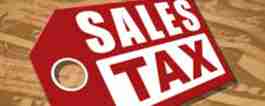Blog
How Sales Tax Impacts Consumer Behavior
Sales tax is more than just a financial obligation; it has a significant impact on consumer behavior and purchasing decisions. Understanding how sales tax influences consumers is crucial for businesses aiming to optimize their pricing strategies and for policymakers considering the broader implications of tax rates.
Psychological Impact of Sales Tax
One of the most profound ways sales tax affects consumer behavior is through its psychological impact. When consumers see a price tag, they often focus on the base price, not the total cost after taxes. However, when the final amount at checkout is higher due to sales tax, it can lead to a perception of decreased value. This phenomenon can deter consumers from making a purchase or prompt them to seek out lower-tax alternatives.
Sales Tax and Price Sensitivity
Price sensitivity, or the degree to which the price of a product affects consumer demand, is closely linked to sales tax. Products with high price sensitivity are more likely to see a drop in sales when taxes increase. This is particularly true for non-essential goods, where consumers can easily delay or forego purchases. On the other hand, essential items, which are less price-sensitive, may see less impact from tax changes.
Impact on Different Income Groups
Sales tax is often considered regressive, meaning it takes a larger percentage of income from low-income consumers than from high-income ones. This discrepancy can influence purchasing behavior across different income groups. For lower-income individuals, even a small increase in sales tax can lead to significant changes in consumption patterns, while higher-income consumers may be less affected.
Sales Tax and Shopping Habits
Shopping habits are also influenced by sales tax, particularly during tax-free holidays or in states with lower tax rates. Consumers often plan their purchases around these periods to take advantage of savings, leading to spikes in retail activity. Retailers can capitalize on these behaviors by timing promotions and sales to coincide with these events.
E-Commerce and Sales Tax
The rise of e-commerce has added another layer of complexity to the relationship between sales tax and consumer behavior. Online shoppers are often more price-sensitive, as they can easily compare prices across multiple retailers. The introduction of economic nexus laws, which require online retailers to collect sales tax even without a physical presence, has leveled the playing field somewhat, but the impact on consumer behavior remains significant.
Case Studies of Sales Tax Changes
Historical case studies provide valuable insights into how sales tax changes impact consumer behavior. For example, when certain states have raised or lowered their sales tax rates, the resulting changes in consumer spending patterns can be observed. These case studies highlight the importance of understanding the broader economic context in which sales tax changes occur.
Cross-Border Shopping
Consumers often react to differences in sales tax rates by engaging in cross-border shopping. For instance, residents of high-tax states may travel to neighboring low-tax states to make significant purchases, especially for high-ticket items. This behavior underscores the importance of tax policy in shaping consumer behavior and highlights potential revenue losses for high-tax jurisdictions.
Strategies for Retailers
Retailers can adopt various strategies to mitigate the impact of sales tax on consumer behavior. These include adjusting pricing strategies, offering discounts that offset the tax burden, and clearly communicating the total cost of products, including taxes. By doing so, retailers can reduce the likelihood of lost sales due to tax-related price concerns.
The Role of Transparency
Transparency in pricing, including clear communication about sales tax, can significantly influence consumer behavior. When consumers understand the full cost of their purchases upfront, they are more likely to make informed decisions, reducing the potential for negative reactions at the point of sale.
Sales Tax Holidays and Consumer Behavior
Sales tax holidays, where certain items are temporarily exempt from sales tax, are popular with consumers and can lead to significant spikes in spending. However, the long-term effectiveness of these holidays in stimulating economic growth is debated. Understanding how consumers respond to these temporary tax breaks can help businesses plan their promotions more effectively.
Future Trends in Sales Tax
Looking ahead, changes in tax policy could further alter consumer behavior. For instance, discussions around potential increases or decreases in sales tax rates, as well as the expansion of economic nexus laws, could have significant implications for consumer spending. By staying informed about these trends, businesses can better anticipate and adapt to changes in consumer behavior.


